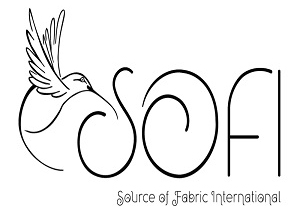In the fast-paced world of fashion, staying ahead of trends is crucial for brands seeking to maintain a competitive edge. As technology continues to evolve, AI-based trend forecasting is emerging as a game-changer in the industry. This article explores how AI-based trend forecasting is unlocking the future of fashion and transforming the way brands operate.
What is AI-Based Trend Forecasting?
Unlocking the Future of Fashion: AI-Based Trend Forecasting leverages advanced algorithms and machine learning to predict future fashion trends. Unlike traditional methods that rely on human intuition and historical data, AI systems analyze vast amounts of data from various sources, including social media, fashion shows, and online retail platforms. This comprehensive analysis enables brands to make informed decisions about upcoming trends, styles, and consumer preferences.
How AI-Based Trend Forecasting is Changing the Game
1. Enhanced Accuracy in Trend Prediction
AI-based trend forecasting enhances accuracy by processing real-time data and identifying patterns that may not be immediately apparent to human analysts. This technology can predict shifts in consumer behavior, emerging color palettes, and popular styles with remarkable precision. For brands, this means they can anticipate trends before they fully emerge, allowing them to adjust their collections and marketing strategies proactively.
2. Streamlined Product Development
AI-driven insights streamline the product development process by providing designers with data-driven recommendations. By understanding which trends are likely to resonate with consumers, designers can create collections that are more aligned with market demands. This reduces the risk of overproducing items that may not sell and helps brands focus their efforts on creating products that will have a higher likelihood of success.
3. Personalized Customer Experiences
Personalization is a key trend in fashion retail, and AI-based trend forecasting plays a significant role in enhancing customer experiences. By analyzing individual preferences and browsing behaviors, AI systems can offer personalized recommendations and tailored shopping experiences. This level of personalization not only improves customer satisfaction but also drives higher engagement and conversion rates.
4. Optimized Inventory Management
Effective inventory management is critical for fashion brands to avoid overstocking or stockouts. AI-based forecasting tools help optimize inventory levels by predicting demand more accurately. This technology enables brands to maintain the right amount of stock, reducing excess inventory and associated costs. It also ensures that popular items are readily available to meet customer demand. Read More About 5 Key Insights: Everything You Must Know About Muslin and Its Revival
5. Sustainable Fashion Practices
As sustainability becomes increasingly important in the fashion industry, AI-based trend forecasting supports eco-friendly practices. By predicting trends with greater accuracy, brands can minimize waste and avoid producing items that may not be in demand. Additionally, AI can help identify sustainable materials and production methods, contributing to a more environmentally responsible fashion industry.
Embracing the Future with SOFI
As AI-based trend forecasting continues to revolutionize the fashion industry, brands have the opportunity to stay ahead of the curve and make data-driven decisions that drive success. At SOFI, we are committed to supporting brands with cutting-edge solutions and high-quality fabrics that align with emerging trends.
As a leading wholesale fabric supplier, SOFI provides a diverse range of fabrics to help you bring your vision to life. Our expertise in fabric sourcing ensures that you have access to the latest materials and trends, enabling you to create collections that resonate with your target audience. Embrace the future of fashion with AI-based trend forecasting and explore our fabric offerings at SOFI to elevate your brand’s success.


